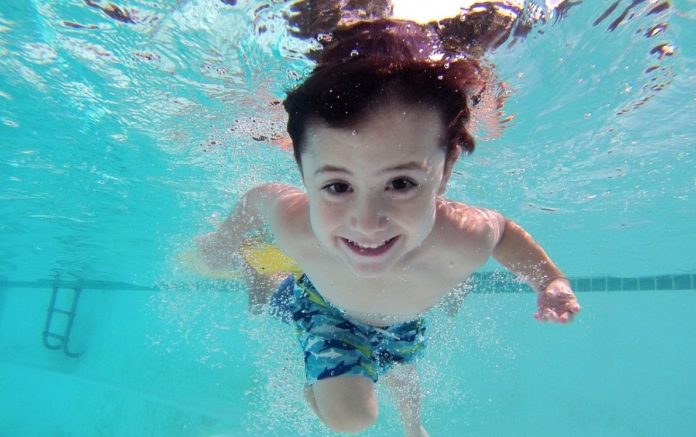In the UK, Indoor swimming pools have received the government’s green light to reopen for the public as a team of virologists from the UK’s Imperial College London found that swimming pools are safe even with a COVID-19 pandemic.
According to the researchers, chlorinated swimming pool water helps to reduce the activity of the virus which causes Coronavirus.
- Brief Anger Hampers Blood Vessel Function Leading to Increased Risk of Heart Disease and Stroke – New Study
- New Blood Test Pinpoints Future Stroke Risk – Study Identifies Inflammatory Molecules as Key Biomarker
- Enceladus: A Potential Haven for Extraterrestrial Life in its Hidden Ocean Depths
- New Experiment: Dark Matter Is Not As ‘DARK’ As All We Think
- Scientists in Fear of This New Predator From Red Sea Eating Native Species in Mediterranean
The findings highlight that the risk of Coronavirus transmission from swimming pool water is “incredibly low”.
The WHO has also talked about using chlorine as coronavirus can be “sensitive” to the chemical.
The agency pointed out that: “Conventional, centralised water treatment methods that utilise filtration and disinfection should inactivate the Covid-19 virus.”
“Other human coronaviruses have been shown to be sensitive to chlorination and disinfection with ultraviolet (UV) light.”
If we add enough amount of Chlorine to the swimming pool water, it can kill germs, including viruses, according to the health authorities in the UK.
“The amount of chlorine in the water needs to be properly maintained in order for its disinfectant qualities to be effective.
“This is why lifeguards and pool managers test chlorine and pH levels throughout the day and make adjustments as needed.”
On the other hand, the Centers for Disease Control and Prevention (CDC) says that when swimming pools are properly maintained, the chlorine in the water should “inactivate” coronavirus, which would prevent the virus from spreading.
This makes sense, because there’s no evidence that coronavirus spreads to people through the water in pools, according to the CDC.
The research established that 1.5mg per liter of free chlorine with a pH between 7-7.2 reduced the infectivity of the virus by more than 1000-fold within 30 seconds.
- Brief Anger Hampers Blood Vessel Function Leading to Increased Risk of Heart Disease and Stroke – New Study
- New Blood Test Pinpoints Future Stroke Risk – Study Identifies Inflammatory Molecules as Key Biomarker
- Enceladus: A Potential Haven for Extraterrestrial Life in its Hidden Ocean Depths
- New Experiment: Dark Matter Is Not As ‘DARK’ As All We Think
- Scientists in Fear of This New Predator From Red Sea Eating Native Species in Mediterranean
Additional testing of different free chlorine and pH ranges confirmed that chlorine in swimming pool water was more effective with a lower pH which is in line with current guidance for swimming pool operation.
Professor Wendy Barclay from Imperial College, explained: “We performed these experiments at our high containment laboratories in London.
“Under these safe conditions, we are able to measure the ability of the virus to infect cells, which is the first step in its transmission.
“By mixing the virus with swimming pool water that was delivered to us by the Water Babies team, we could show that the virus does not survive in swimming pool water: it was no longer infectious.
“That, coupled with the huge dilution factor of virus that might find its way into a swimming pool from an infected person, suggests the chance of contracting Covid-19 from swimming pool water is negligible.”
